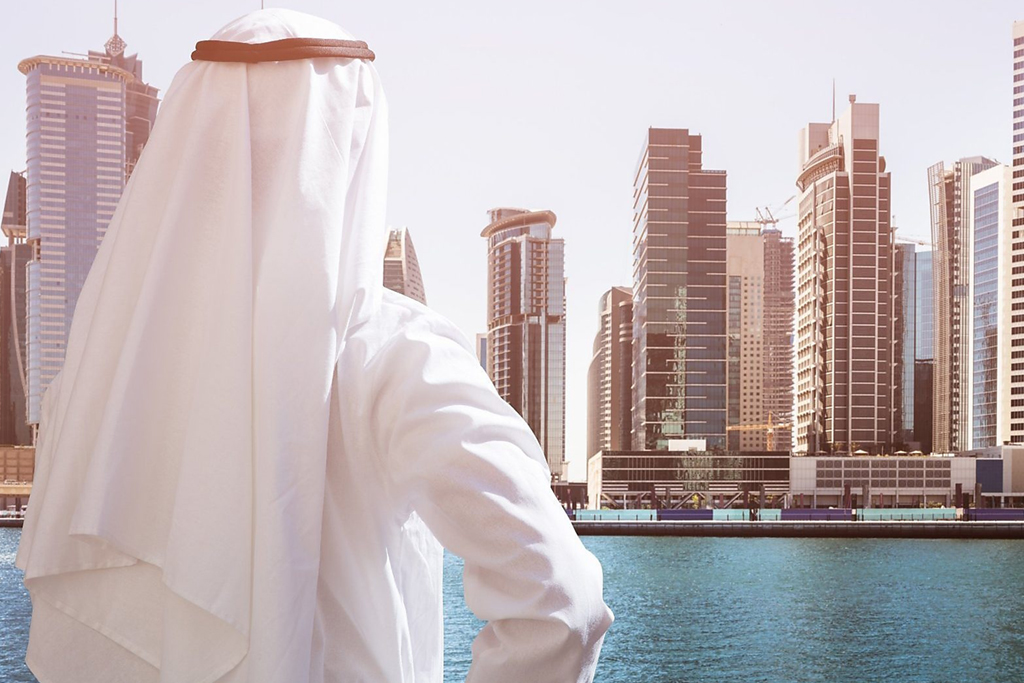With more than 3 million people and approximately 200 nationalities, Dubai, the most populous city in the United Arab Emirates (UAE), is an undoubtedly multicultural city. As an international hub, the need for professional translation services is keenly felt in almost every industry. Let’s take a closer look.
Languages in Dubai
Arabic is the official language of Dubai, though there many different dialects spoken in the city. Khaleeji, or Gulf Arabic, is the dialect most spoken by locals, though other versions such as Masri -Egyptian Arabic- are also prevalent. Newspapers, legal paperwork, government documents, and other official texts, and typically written in Modern Standard Arabic (MSA).
Due to the huge number of expats living in Dubai, you will come across many other languages being used if you visit. English is widely spoken, particularly in the business, trade, tourism, and service spheres. Other commonly spoken languages in Dubai include Urdu, Hindi, Tagalog, Bengal, Tamil, and Farsi. As such, multilingualism and translation play a vital role in the successful functioning of the city.
Financial services in Dubai
The last few years have seen Dubai, and the UAE as a whole, become one of the world’s top financial centers. In fact, in 2019, Dubai ranked eighth in the Global Financial Centres Index (GFCI), cracking the top ten for the first time.
This raise has been driven by the Dubai International Financial Centre (DIFC), which was established as a special economic zone in 2004 and has become a financial hub for the Middle East, South Asia, and Africa. One of the most successful initiatives the DIFC has established is the FinTech Hive, an accelerator program for fintech start-ups that has been running for some four years.
Financial translation
As with any sector where specialist language and complex jargon is used, financial translation requires professional translators who are not only experts in their language pairs but also specialize in the financial industry.
When looking for a language service provider (LSP) for your financial translations, you should ensure that they:
- Use advanced technology for quality assurance checks: translation projects of all types must be checked several times by different editors. Due to the large volume of numerical information present in financial documents, which are difficult for the human eye to edit with 100% accuracy, sophisticated technology must be utilized.
- They follow the best security and confidentiality practices.
- They have an in-depth knowledge of the financial environments of both the source and target markets.
- They keep up with emerging financial terms and trends.
Business sectors in Dubai
Just as the financial industry in Dubai boomed, so has the corporate sector. With more than 30 free zones, it’s no surprise that Dubai is home to over 200,000 registered companies and 56% of the world’s Fortune 500 companies. The most profitable industries and businesses in Dubai include real estate, trade, and travel and tourism. Given Dubai’s multicultural nature, business translation services are in high demand in the city.
Travel and tourism industry in Dubai
As previously mentioned, Dubai’s travel and tourism industry has flourished in recent years. In 2013 Dubai’s government launched the Dubai Tourism Strategy 2020, which aimed to attract 20 million visitors a year by 2020. This was later extended with a new goal with the target of attracting 23-25 million tourists by 2025.
Although the travel industry has been particularly affected by the COVID-19 pandemic and Dubai, like many tourist hubs, was forced to close its borders for several months, the city has put several initiatives in action that aim to protect the industry.
Translation plays a key role in successfully catering to international visitors, and the most common documents that need to be translated include:
- Brochures, leaflets, and welcome packs
- Accommodation and attraction websites
- Travel guides
- Audio guides for tourist attractions
- Signage
- Advertising
Pharmaceuticals and medical equipment in Dubai
In 2016 the Dubai Industrial Strategy 2030 was launched with the objective of elevating Dubai into a global platform for knowledge-based, sustainable, and innovation-focussed businesses. As part of this strategy, six priority sub-sectors were identified based on their future growth prospects: Pharmaceuticals and Medical Equipment, Aerospace, Maritime, Aluminum and Fabricated Metals, Food and Beverages, and Machinery and Equipment.
The Pharma and Medical Equipment sector is a global industry that requires highly specialized translation that adheres to strict industry standards and regulations. Examples of pharma and medical device documents that require translation include:
- Package inserts and labels
- Instructions for use
- Operating, maintenance, and installation manuals
- Development Safety Update Reports (DSURs)
- Suspected Unexpected Serious Adverse Reactions (SUSARs)
The takeaway
In addition to being an incredibly multicultural city, Dubai is rapidly developing and expanding in a wide range of industries and sectors on a global scale. The combination of these factors means that reliable translation services are extremely sought after.
If you’re looking for a translation service provider with an experienced team of specialized translators, look no further than Wordx. For more information or a free, no-obligation quote, get in touch today.



Your Comment
Leave a Reply Now